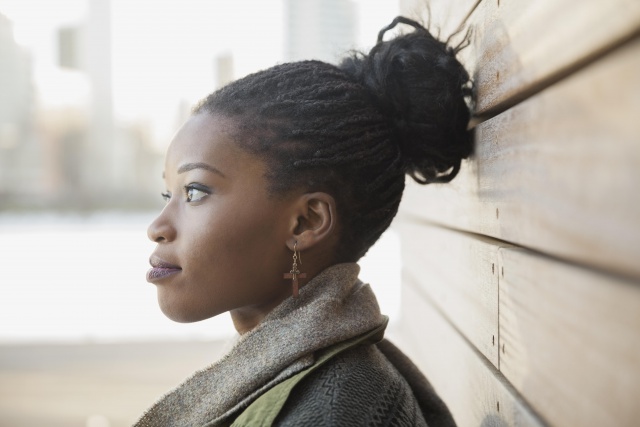Source: Hero Images / Getty
Hairstyles are an integral part of our identity, and every unique style holds history and rich cultural significance within various communities. Unfortunately, some hairstyles have been appropriated by others without understanding or respecting their cultural significance. Black hairstyles have been appropriated the most.
MORE: Ireland’s Earliest Inhabitants Were Black People With Blue Eyes
From box braids and twists to cornrows and dreadlocks, Black people have been subjected to discrimination and ridicule for their natural hairstyles for centuries. The Western beauty standard has often portrayed natural Black hair as unprofessional or unkempt, which has led many communities of color to feel pressured to conform to Eurocentric beauty standards by straightening or altering their hair.
Hair is a sensitive topic for Black people. It can dictate how we’re perceived and even determine how much money we make.
In February, a study co-commissioned by Dove and LinkedIn found that Black women’s hair was 2.5 times more likely to be perceived as unprofessional in the workplace. The data also revealed that 66 percent of Black women often change their hair for a job interview, with many opting for a straight hairstyle over their natural tresses. Around 25 percent of participants said they had been denied a job interview or overlooked for opportunities because of their natural hair.
Black hairstyles have a deep significance within the Black community and have been used as a form of self-expression and resistance against white supremacy and oppression. However, when these hairstyles are adopted by non-Black individuals without understanding their cultural significance, it can be seen as disrespectful and insensitive.
We must protect the creativity and sanctity of Black hair at all costs. Black hair is a form of power and beauty. And we continue to wear it proudly despite all of the obstacles stacked against us. Here are six Black hairstyles that have been greatly appropriated and that the entire world should be thanking Black people for.
MORE: The Origins Of Black People With Red Hair
The post Black Hairstyles That Have Been Appropriated By The World appeared first on NewsOne.
Black Hairstyles That Have Been Appropriated By The World was originally published on newsone.com
Dreadlocks, or simply “locs,” are a hairstyle that involves allowing hair to grow and mat together into thick, rope-like strands. The popular hairstyle has roots in Rastafarian culture.
According to Migrations in History, Rastafarians proudly wear their locs as a homage to their African identity and a vow to their separation from Babylon, a historically “white-European imperialist structure that has oppressed blacks and other people of color centuries.”
Over the years, dreadlocks have been co-opted by white people. Adam Duritz of Counting Crows and American Idol alum Jason Castro are two white stars who have proudly worn the spiritual style.
Similarly, box braids have a long history in African culture and were often used as a way to protect hair from the harsh elements during long journeys. But in recent years, the style has become a fad among the biggest and whitest in Hollywood.
In 2020, Kim Kardashian was called out for wearing large box braids to the Yeezy Paris Week Fashion show. Social media users slammed the socialite for appropriating the style.
The afro, also known as a “fro,” was popularized during the Black Power movement of the 1960s and 1970s as a symbol of Black pride and resistance.
Comedian and actor Carrot-Top has famously rocked a curly afro for years. We got to admit. He might be the only white celeb that gets a pass for rocking the style. It looks good!
Cornrows, which are braids that are close to the scalp, have been worn for centuries in Africa and were often used to indicate social status or tribe members.
Today, cornrows have become a popular hairstyle among different cultures around the world, and they are often styled in various patterns and designs.
The versatile look has been worn by famous stars like Alicia Keys and Doja Cat. A few non Black celebs have dared to rock the ambitious hairstyle, too, including Katy Petty and Gwen Stefani.
Bantu knots are a traditional African hairstyle that involves sectioning hair and twisting it into small knots. The hairstyle originated from the Bantu people of Southern Africa.
Now, the regional look has made its way into the high fashion world.
In 2022, singer Tinashe famously rocked bantu knots while attending the American Music Awards.
Twists are a hairstyle that involves sectioning hair and twisting it into rope-like strands. Twists can be worn in various sizes, including two-strand twists, three-strand twists, and flat twists.
Brandy, Ciara and Gabrielle Union have stunned wearing twisted styles out and about on the red carpet. But some non Black celebs have caught flack for sporting the unique look such as Christina Aguilera.

